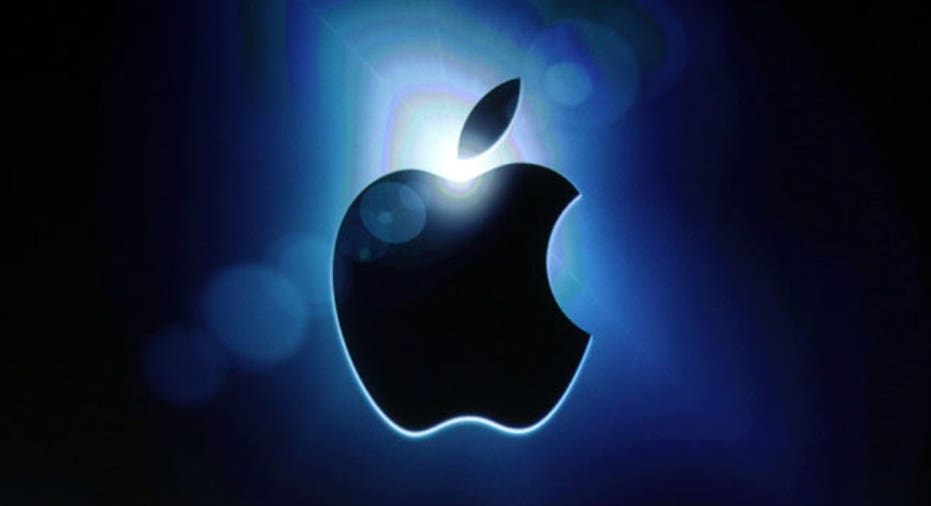Apple's Cook Takes on the Senate

A report from the U.S. Senate Permanent Subcommittee on Investigations, led by Sens. Carl Levin (D., Mich.) and John McCain (R., Ariz.), will say Apple (NASDAQ:AAPL) used an overseas tax structure to avoid taxes on at least $74 billion in profits between 2009 and 2012.
But in a rare move, Apple chief executive Tim Cook will dispute those findings when he testifies before the Senate Permanent Subcommittee on Investigations, in the process defending Apple’s tax strategies via testimony that indicates he will say the Congressmen misapprehend tax law and its effect on U.S. companies.
A preview of his testimony shows Cook will testify that Apple does not use “gimmicks,” that Apple’s Irish subsidiaries-- Apple Operations International and Apple Sales International--contributed more than half of Apple's R&D costs in 2012; that its R&D cost-sharing operations have been in Ireland since 1980; that the IRS has routinely examined the structure and that it falls within the letter of the tax law.
The Apple CEO will explain that the reason nearly two-thirds of its $144.7 billion cash and equivalents is parked overseas is because international operations account for 61% of Apple’s sales and due to the high 35% U.S. corporate rate..
Apple’s Cook will also testify Apple uses that money overseas to expand globally, including acquisitions and to support its overseas operations, including construction of retail stores in Europe and Asia. The U.S. is one of the few countries where foreign profits are taxed twice, first by the overseas government, then again at the 35% U.S. corporate tax rate when profits are repatriated. The corporate rate is one of the highest in the world, says the OECD, nearly as high as Argentina, Chad and Uzbekistan, though U.S. companies make various tax moves to lower their rate.
J.P. Morgan Chase (NYSE:JPM) estimates U.S. companies currently hold $1.7 trillion in profits outside the U.S. The White House has already been advised by members of its Jobs Council and the Economic Advisory Board to cut the corporate rate.
In addition to hurting competitiveness of U.S. companies, the high rate opens the door to Congress’s backroom wheeling and dealing to pass special favors in the form of loopholes for the most politically influential companies and donors.
Cook will testify the company is likely the largest corporate income taxpayer in the U.S., having paid nearly $6 billion in taxes to the U.S. Treasury in fiscal 2012, or $1 in every $40 in corporate income tax the U.S.
According to a prepared testimony, Cook will tell Congress: “Apple does not use tax gimmicks," including that Apple does not move its intellectual property into offshore tax havens; use it to sell products back into the U.S. in order to avoid U.S. tax; it does not use revolving loans from foreign subsidiaries to fund its domestic operations; it does not hold money on a Caribbean island; and it does not have a bank account in the Cayman Islands.”
Also, Cook will say Apple has already created or supported 600,000 U.S. jobs, including nearly 50,000 jobs for Apple employees and about 550,000 jobs at other companies, including 290,000 jobs in the “app economy,” where Apple has shelled out $9 billion to third-party app developers worldwide in less than five years.
The Apple exec will say a dozen major public employee and private pension funds depend on Apple’s share price, including public funds in Michigan, Ohio and Kentucky. They own about $14.6 billion worth of Apple stock, and get about $396 million in yearly dividends. “At approximately 3% of the S&P 500, Apple is one of the most-widely held equities in the mutual fund industry,” the testimony shows.
The Apple CEO will say that the 35% U.S. corporate tax rate “severely discourages” repatriating funds to the U.S. Cook will advocate eliminating all tax expenditures, lower tax rates and put in place “a reasonable tax on foreign earnings that allows free movement of capital back to the U.S.” A lower rate will help economic growth, the executive will say.
Cook will also push Congress to simplify the tax code even if it creates a higher tax bill for the company. “Apple has always believed in the simple, not the complex,” he will say.
The Senate committee has already heard testimony from executives at Microsoft (NASDAQ:MSFT) and Hewlett-Packard (NYSE:HPQ) on the corporate tax system. H-P had disclosed to shareholders that "substantially all of H-P's total cash balances are held outside the U.S."
In a bit of irony, Apple points out that Congress itself affirmed the propriety of such moves “when it codified the economic substance doctrine” in the health reform bill, that “taxpayers are free to use a domestic or foreign entity for purposes of conducting their foreign affairs.”
U.S. companies like Microsoft, Apple and Wal-Mart (NYSE:WMT) compete in overseas markets against German, Chinese and Swiss firms that pay lower tax rates. Corporate executives have petitioned Congress to cut the U.S. corporate rate to the international average of 25%, which Apple disclosed was its effective rate in fiscal 2012.
Elected officials have repeatedly fought for higher government spending, arguing such spending creates economic growth, but have blasted companies like Apple for spending their cash on dividends or buybacks, immune to the argument that more money in consumer-investors’ pockets also create economic growth. Apple’s Cook will also take on the controversy from last month when it announced it would borrow $17 billion instead of repatriating its overseas cash to help fund an historic $60 billion stock buyback, saving $9 billion in taxes.
“Any objective analysis will conclude that the company’s choice to issue debt, rather than repatriate foreign earnings, was in its shareholders’ best interests,” the testimony shows.



















